Eliminate food waste, cut food costs and get smoother operations. Apicbase’s procurement software for restaurants includes demand forecasting and real-time inventory management. This is ideal for large-scale food service operations. All your locations can order from their suppliers from a centralised platform.
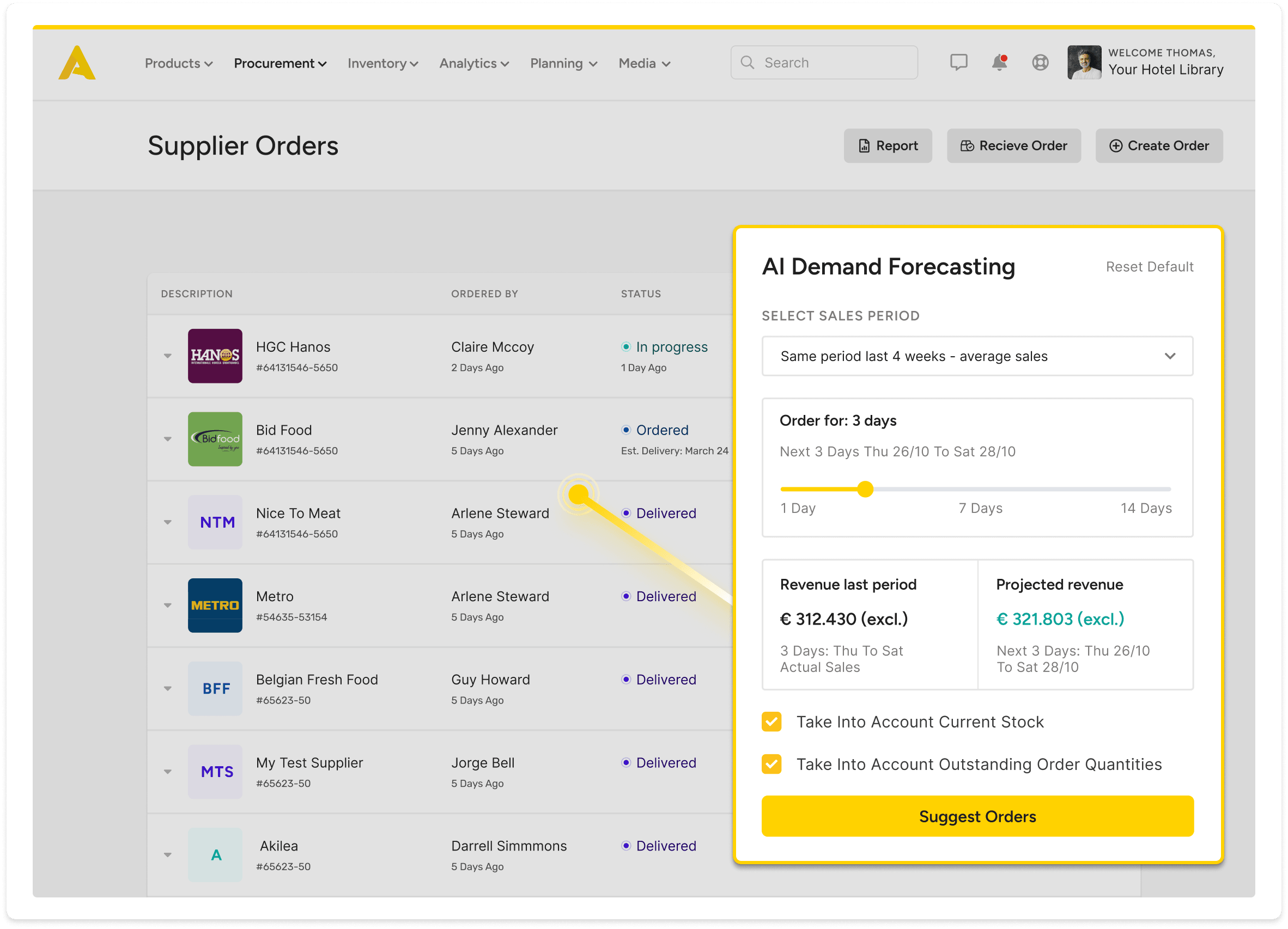


Restaurant purchasing software feels like magic. Apicbase predicts upcoming sales and generates accurate purchase orders for each supplier.
No more procurement or inventory blind spots. All orders from suppliers are recorded end-to-end, from the bill of materials to the purchase orders and receiving in streamlined.
Your teams know in real time what they have in stock and how much they need to order from suppliers to meet future demand. No more overstocking, food waste or inflated food costs.
Apicbase’s procurement platform helps your kitchen staff manage the supply chain. It generates purchase orders per supplier based on real-time inventory, historical sales and sales forecasts.
The app turns your bills-of-materials — for recipes, menus and production plans — into optimised purchase orders for individual suppliers. One click is all it takes
You have recurring orders and you know exactly how much you need? Create standardised order lists. The software checks your inventory levels and puts the exact amount of every item on the PO.
Set par-levels for inventory items and re-stock up to par. The required quantities are automatically transferred to the PO of the vendor. Ideal for items that you order regularly.
Avoid empty shelves. You can set minimum stock levels for essential ingredients and sub-recipes in the F&B purchasing tool and get notified when stock is running low.
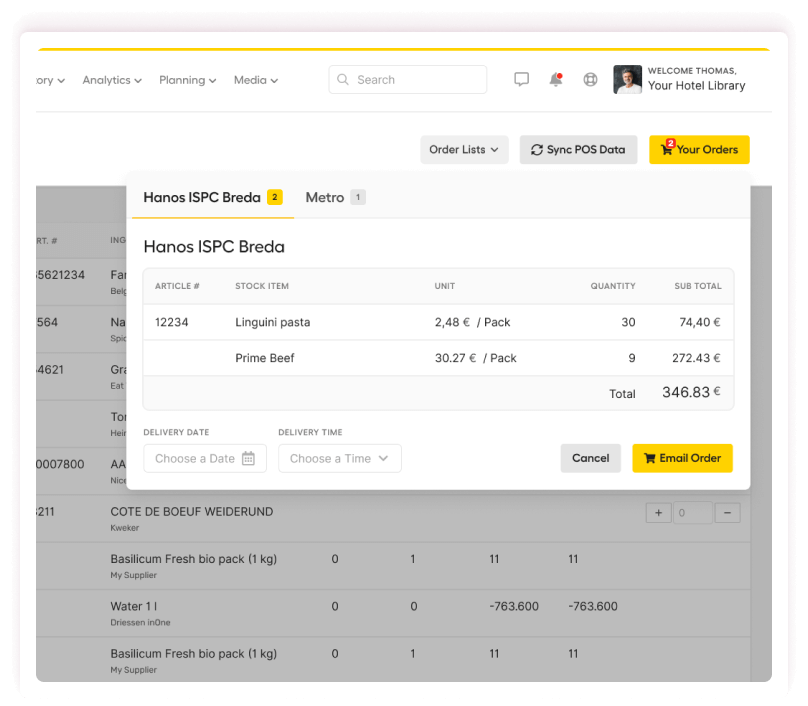

Track vendor behaviour and weekly delivery values with restaurant analytics software. Use these insights to negotiate better deals and lower your theoretical [and actual] food costs. And keep a vice-like grip on your CoGS at all times.
Only pay for what you ordered and received—nothing more. Apicbase automatically compares supplier invoices with purchase orders and goods receipt, flagging discrepancies in pricing, quantities, or deliveries instantly. Prevent overpayments and fraud before they happen.
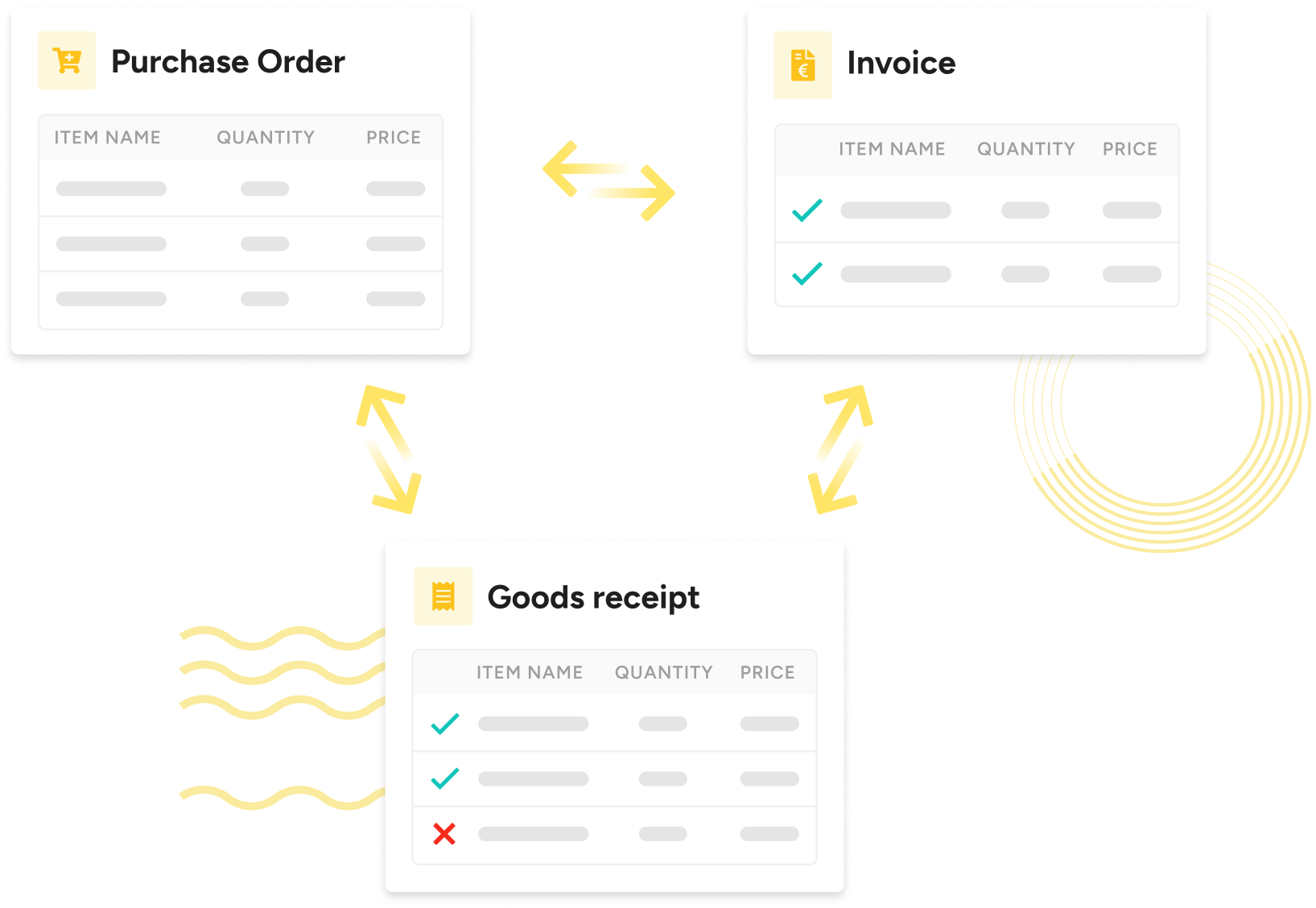
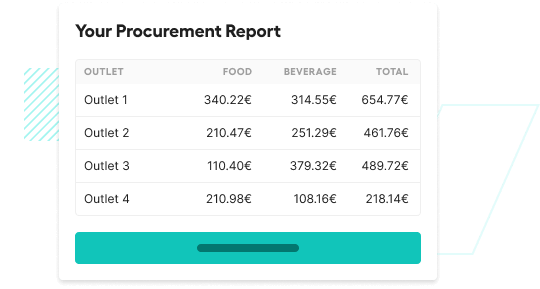
Check your procurement history, identify areas of improvement and optimise protocols. The Apicbase restaurant procurement management software generates detailed reports on the purchasing history of each unit and supplier.
Keep track of procurement actions, inventory management and suppliers at every unit in a single dashboard. The system operates in the cloud so no calls, e-mail or texts are required.
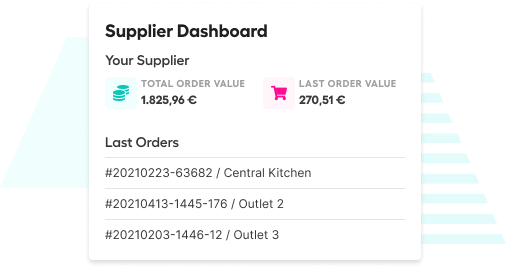

Procedures are everything. Assign user permissions, so you know who to talk to when action needs to be taken.
Cut food waste and costs. Apicbase’s AI-driven sales predictions allow your restaurant teams to manage their inventories effectively and efficiently.
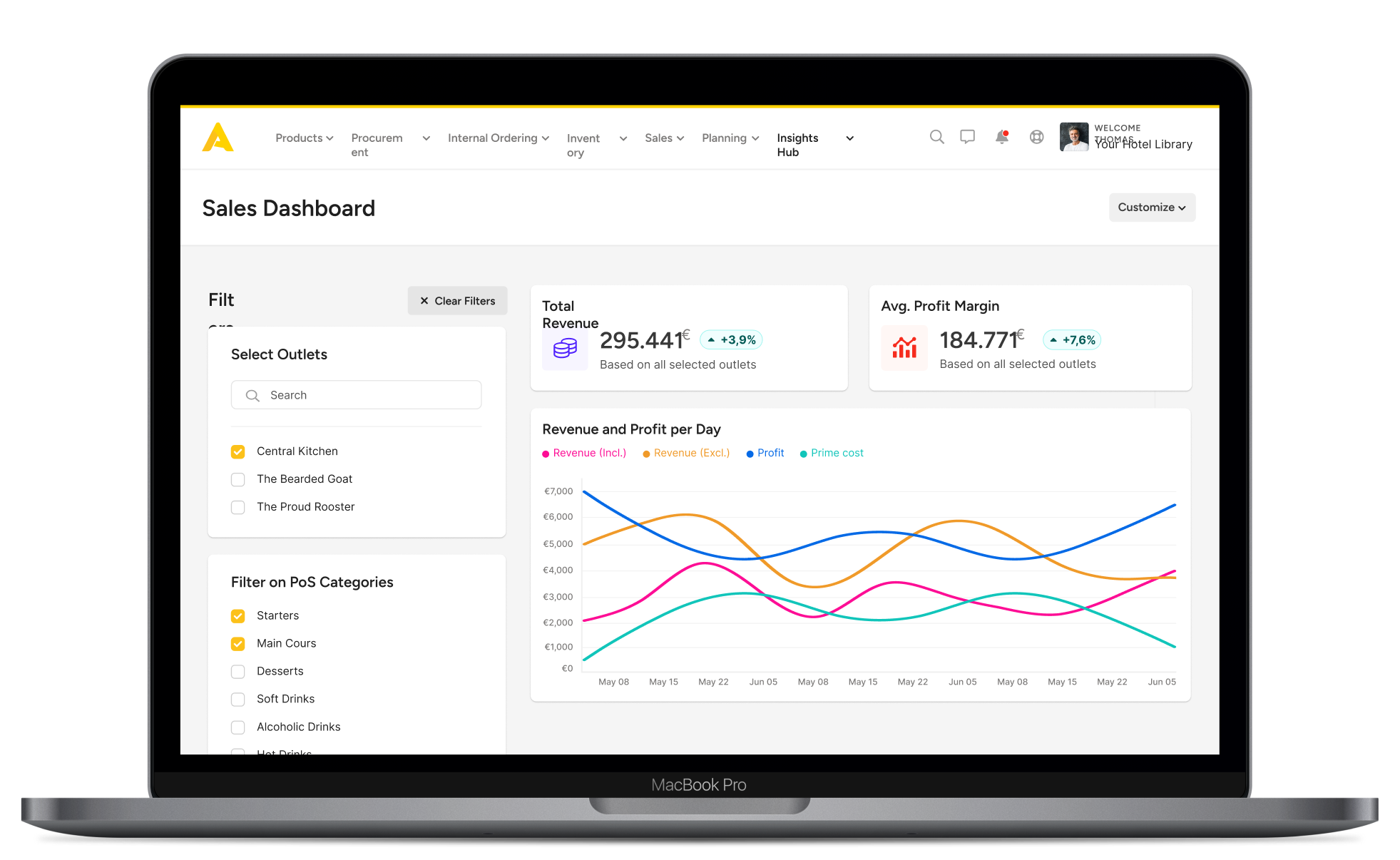

Procurement mistakes are sneaky but pile up quickly. Save yourself the time of comparing POs, invoices and spreadsheets. Start managing F&B purchasing like a Jedi.
With the restaurant procurement app, you can run and monitor all procurement events in a crystal-clear dashboard.
POs are sent to your vendors directly. When suppliers are integrated, pricing is updated daily. The procurement module and the vendor’s website operate as one.
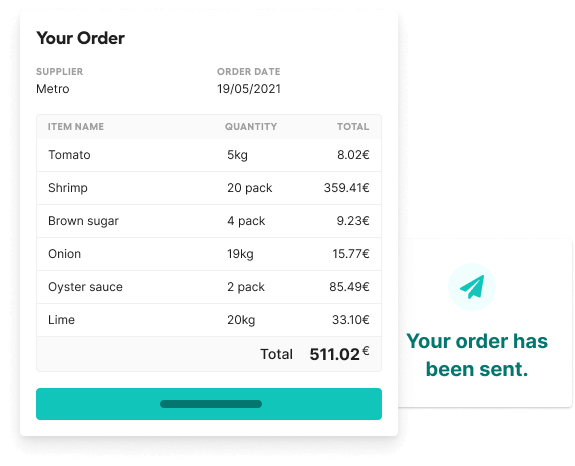
exactly when a purchase order was sent, if the goods were received in good order, when the invoice is due, and if it is paid. Same goes for orders from outlets to the central kitchen.
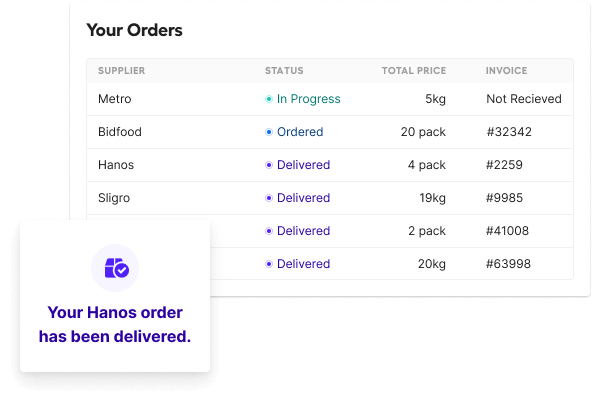
Apicbase is built to share. The robust APIs make data available to other solutions to ensure a seamless data flow in your tech ecosystem.



We are growing fast — more people, more outlets, more suppliers. Apicbase is a massive time-saver. All data is centralised, up to date and accessible.
F&B manager
In Apicbase, go to the procurement tab and click “Create Order.” Select your outlet, and a list of ingredients will appear. Filter the list as needed and add the desired quantities to your basket. Apicbase will automatically choose the right supplier and packaging option. You can also order based on PAR levels, a bill of materials, production plans, menu cycles, or forecasted demand. In each case, Apicbase optimises purchase orders by considering current inventory, upcoming deliveries, and lead times. This data-driven system reduces food waste, overstocking, and stockouts, helping restaurant managers control food costs. Click here for a step-by-step guide.
Apicbase is integrated with leading suppliers in the UK, EU, and US. If your supplier isn’t listed, please inform us. We are happy to explore the options.
There is no limit to the number of suppliers you can manage in Apicbase. The platform provides detailed insights into purchasing, receiving, and supplier performance at every outlet.
Apicbase integrates seamlessly with leading POS systems in the EU, UK and US. You can find an overview here. All relevant information is synchronised for accurate forecasting and inventory management. If your supplier isn’t listed, please inform us. We are happy to explore the options.
Yes, Apicbase lets you see what was ordered and delivered from a specific outlet with a specific supplier or across all outlets.
Yes, you can. In the Apicbase app, kitchen teams can register deliveries. Go to the ‘Receive Orders’ tab to view all orders. Expected deliveries appear at the top, followed by orders that are already partially delivered. Click on the order you want to process to get started. For a step-by-step manual, go here.
Yes, the procurement dashboards display discrepancies between what was ordered and what was delivered, sorted by supplier and outlet. They also show the total value of missed deliveries for each supplier. You can drill down into all discrepancies to trace specific POs and deliveries. These reports provide valuable insights to support vendor management and supplier negotiations.
Yes, all internal transfers between restaurant units are logged and can be viewed in the dashboards and reports.
Yes, your satellite kitchens can place orders with the central production unit. Based on these internal orders, Apicbase generates bills of production and creates purchase orders for external suppliers delivering to the central kitchen.
Yes, when a stock item reaches its reorder point or minimum level, the person responsible receives a notification with the option to add the order to a purchase order.
Yes, you can set minimum order quantities per supplier in Apicbase, for example, to trigger bulk discounts. If an order falls below the required minimum, staff will receive a notification.
Yes, you can set minimum stock levels. If an item drops below the threshold, the employee responsible for purchases will receive a notification.
Yes, Apicbase centralises purchasing, receiving, and vendor management into a single platform. This enables restaurant managers to place orders with all suppliers at once, while HQ can monitor orders, order values, and supplier performance.
Apicbase NV – 2025. All Rights reserved
Apicbase is the most complete F&B management platform for multi-unit restaurants, hotels, ghost kitchens.